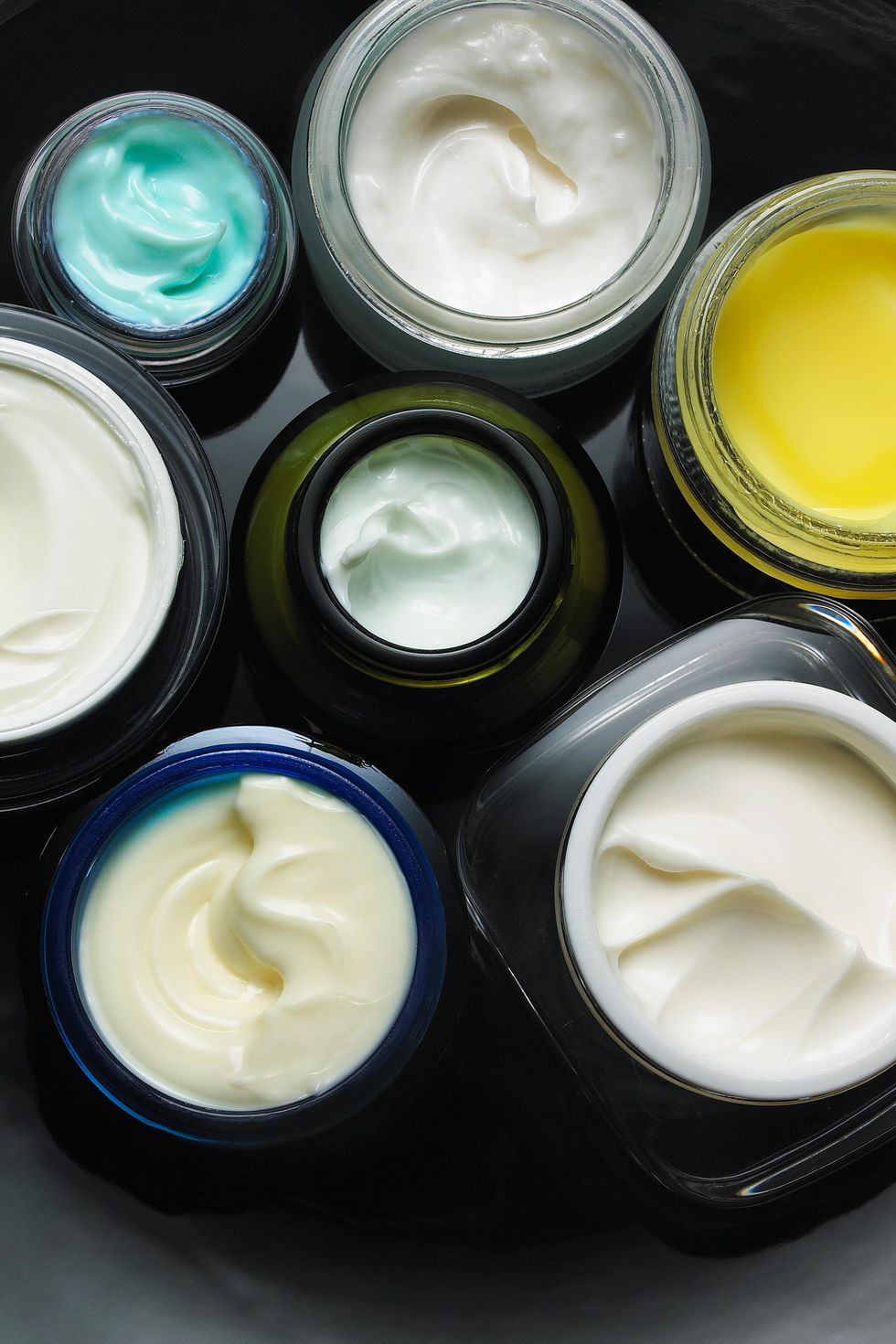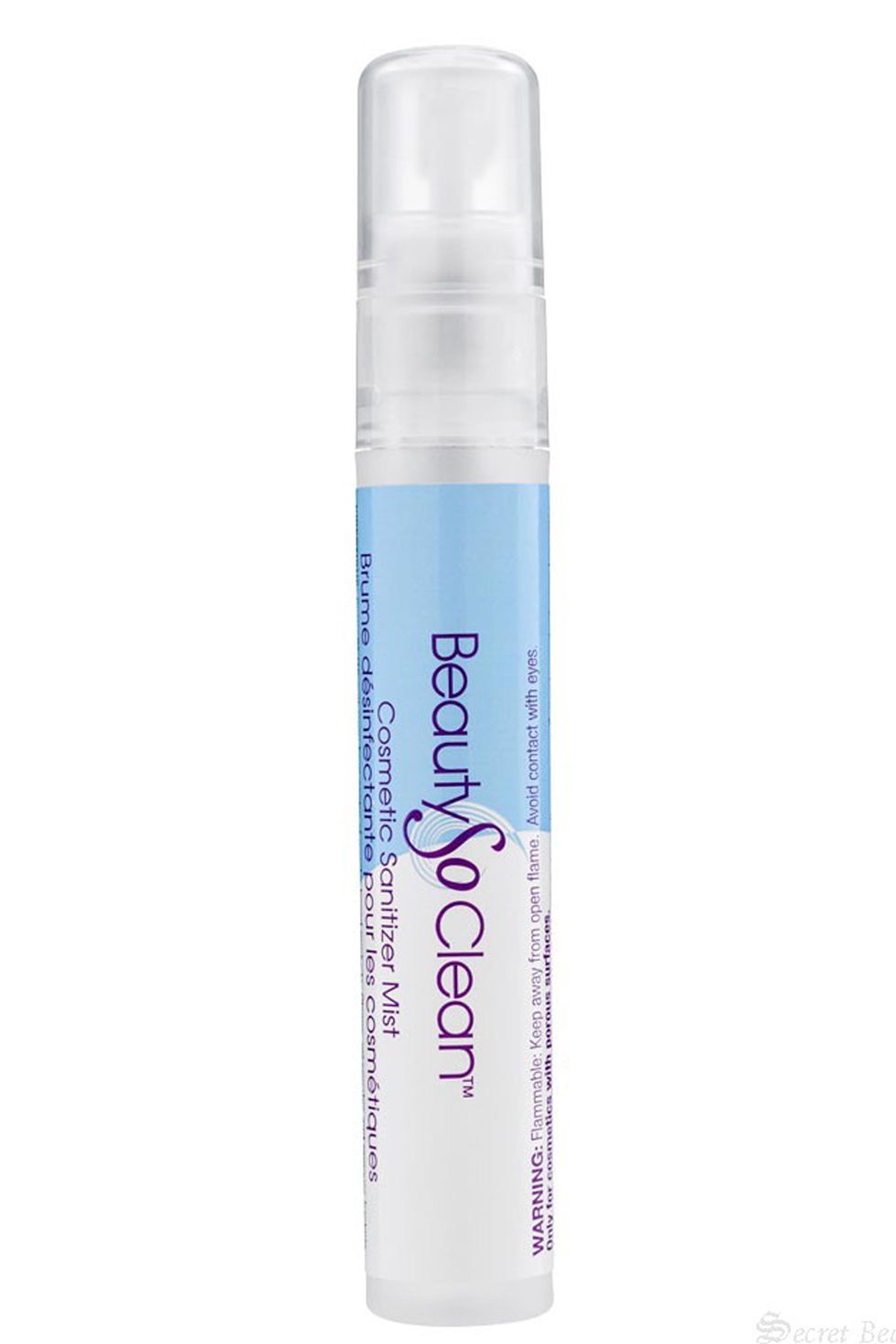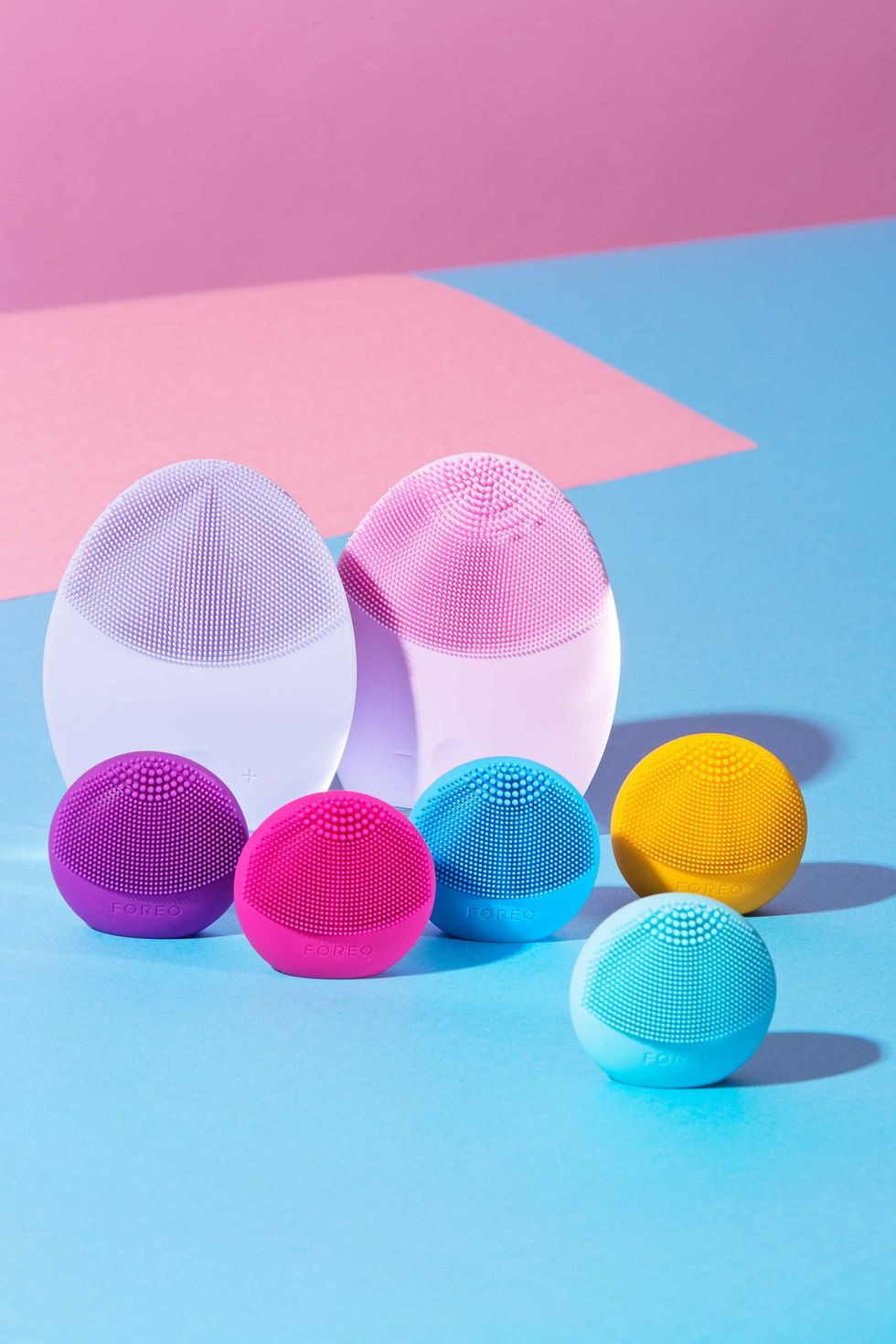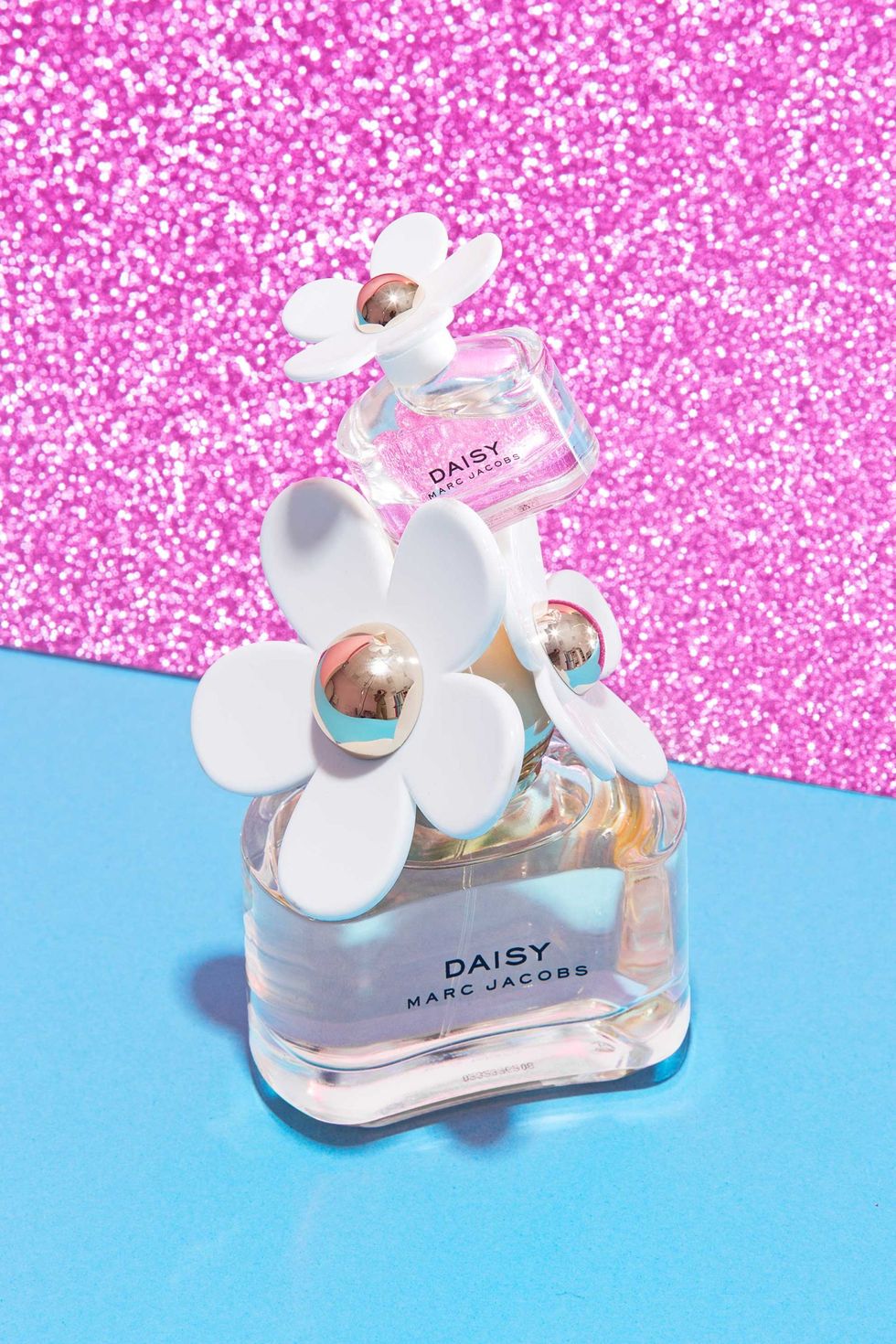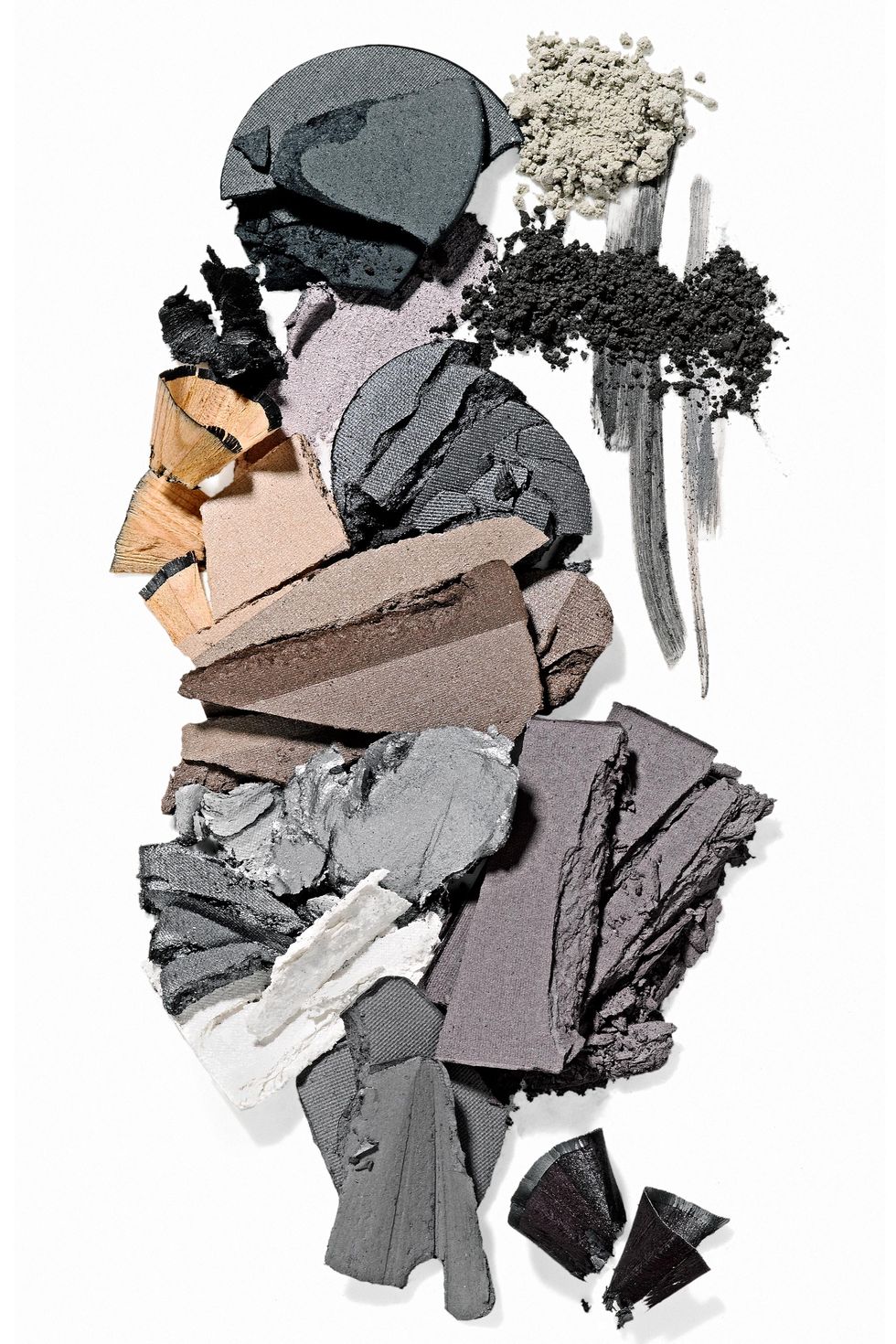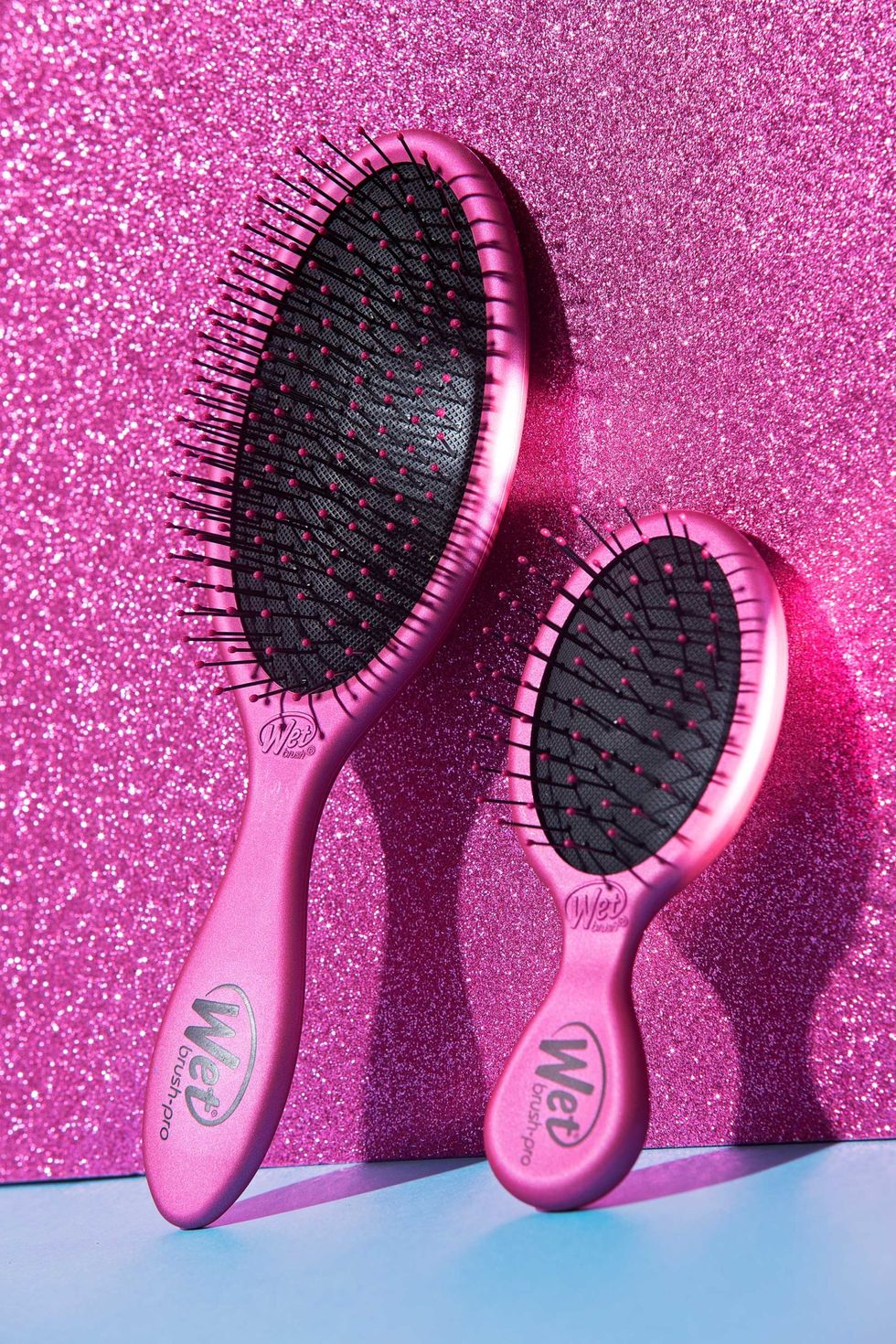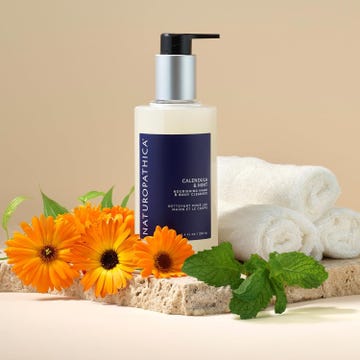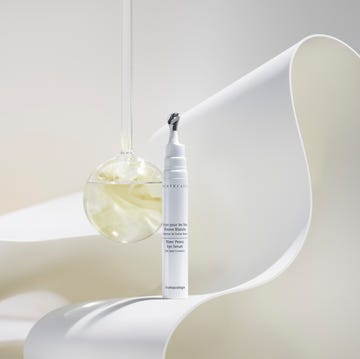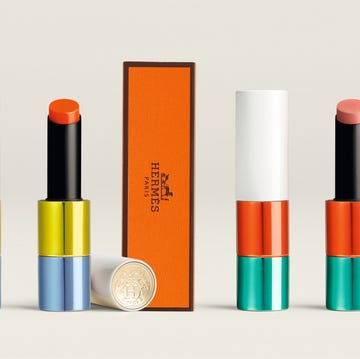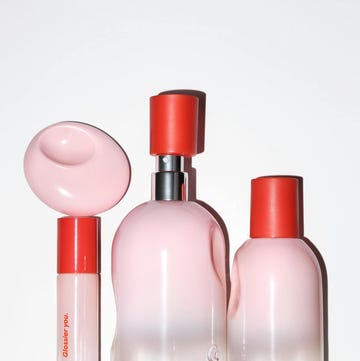It's tempting to watch your best friend pull her favorite (and perfectly shaded!) pinkish nude lipstick out of her bag and want to ask to use it when she's done. But the truth is, you just shouldn't—unless, of course, you have some alcohol-based wipes at the ready to sanitize it. And here's why: "Even though someone doesn't have a visible cold sore, they can still carry herpes simplex virus 1 [HSV-1] and pass it off to you in one makeup application," explains Dendy Engelman, MD, a New York City cosmetic dermatologist."That's why it's so important to reduce the risk of communicating these types of viruses and different types of bacteria to one another by using your own makeup."
That said, Dr. Engelman broke down which beauty products you should steer clear of sharing and which are safe to borrow from your BFF:
STEER CLEAR OF SHARING:
1. Any beauty products that comes in a jar. If you have to dip your fingers into a cleanser, day or night cream, eye creams, foundation, lip balm, etc., it's best that you (1) wash your hands before coming into contact with the formula and (2) keep that product for your own personal use. "You don't want to create a petri dish out of the cream you're going to be applying to your face," Dr. Engelman says, especially since your body absorbs 60 percent of whatever you apply on your skin (and the bacteria that comes with it).
2. Mascara. Your favorite mascara can harbor bacteria and viruses that are easily transmissible, like conjunctivitis. And since your eyes don't have the same layers of protection that your skin does, it's more susceptible to infections like pink eye. "Plus, each time you pull the wand out and push it back in to lube up the brush head, you push air into the dark bottle's base, feeding the aerobic bacteria that can survive in an oxygenated area," Dr. Engelman adds. Basically, the only safe way to share your mascara, if you so desire, is to practice what pro makeup artists do and never let the wand that comes with it be used; use only disposable wands to apply it, and never double dip.
3. Pressed foundation. Dry powders don't hold onto bacteria the way that wet formulas do, but that doesn't mean you can't transfer bacteria from one person to another—especially if you're using a sponge to touch up areas around your mouth or eyes. The only safe way to let your girlfriend use your pressed powder, should she need to touch up her shiny forehead in a selfie emergency, is to spray the powder with an alcohol-based spray, like BeautySoClean Cosmetic Sanitizer Mist, give her a clean makeup brush to use, and have her swipe it over pressed powder once.
4. Lipstick or balm. Lipstick and balms are a hard no to sharing unless you stash an alcohol spray or wipe in your purse to sanitize them. "A large percentage of people carry HSV-1, but just because it's in your system doesn't mean you ever show signs of it externally," Dr. Engelman says. "This is referred to as asymptomatic shedding, where you have the virus but you don't show any symptoms; it's all based on your immunity and whether or not something like stress can trigger an outbreak." That's why it's so important to use your own lip products, because if you pass your favorite lipstick around from girl to girl and you or your friend has the virus, you could be transferring bacteria or HSV-1 and never know it. And then you won't know if you have the capability to develop a cold sore of fever blister until you have it, which is unfortunately too late.
5. Lip gloss. Again, you're not only pushing air back into the base of your gloss every time you reapply it, but the moist, dark, gummy formula you're sticking the wand into is the perfect place for bacteria to breed. If it's your own bacteria, that's one thing, but you never want to introduce someone else's bacteria into the formula because HSV-1 and, more frequently, the common cold can spread.
[instagram ]https://www.instagram.com/p/BI86nyVBkhp/?taken-by=kyliejenner&hl=en[/instagram]
6. Cream shadows. The tacky nature of these types of formulas can trap and harbor bacteria, so it's best not to pass your cream shadow around to your friends while you guys are getting ready to go out. Especially since you probably use your fingers to apply this type of product and have contaminated it with your own bacteria.
7. Makeup brushes. While acne is an internal skin condition, you can exacerbate the issue by using someone else's brushes and cross-contaminating bacteria. The only safe way to share your brushes, Dr. Engelman says—and not to sound like a broken record—is to use a fresh brush or spray your used brush with alcohol to kill bacteria. Best practice though, if you are breaking out constantly, is to shampoo them weekly (and then condition them so they last a long time).
[instagram ]https://www.instagram.com/p/BHxgil_j1Yh/?taken-by=kathleenlights&hl=en[/instagram]
8. Toothbrushes. Again, this is a hard no, even though we've all been guilty of doing it. "The mouth is filled with bacteria—good and bad. The bad ones are called anaerobic oral bacteria, which are responsible for the smelly volatile sulfur compounds (VSCs) smell if you forget to brush or teeth, or that heighten when you have an infection, Dr. Engelman explains. That's why it's so important to (1) brush your teeth regularly (morning and night and after meals if you're susceptible to cavities) to keep this bacteria at bay and (2) why you shouldn't be sharing a toothbrush with anyone.
Have a live-in partner and want to share the same electronic toothbrush? Get two different heads to use to keep the bacteria separate.
9. Facial cleansing brush. These devices are under the personal care product category for a reason: They're not meant to be shared. Think of all the dirt, oil, dead skin cells, and bacteria you clean off your face on a daily basis. Do you want to then buff someone else's grime into your skin? Nope! Again, if you live with your partner and they constantly steal your facial cleansing brush, like Clarisonic's Mia Cleansing System, share the unit by buying several brush heads (They're pretty inexpensive!) so you can have your very own. That, or you can pickup one of these minis for your man from Foreo, so he has his own little facial cleanser.
10. Razors. Razors are important to not share, says Dr. Engelman. Even though stainless steel doesn't carry bacteria for very long, you can still transfer warts or genital herpes—if you or your friend has either—by someone using your razor or by using someone else's. Even worse: Razors can nick you and draw blood or fluids, which leave bacteria on the blade after rinsing, making you more vulnerable to a staph infection, hepatitis, or blood-borne viruses (like HIV, although it's highly unlikely).
SAFE TO SHARE:
11. Anything in a pump. Whether it's a fragrance, hair product, foundation, lotion—what have you—if it comes in a pump, it's totally fine to share, since there isn't that risk of contamination because you never come in contact with the product.
12. Liquid foundation. If your foundation is in a pump form, or if you apply the formula onto a clean sponge every time without touching the applicator to your face, then you can 100 percent share your favorite base with your friend (if her skin tone is similar to yours, of course). If the formula is in a jar that you dip your fingers into, again, you should be washing your hands before every application to avoid contaminating it and keeping it for your own personal use to avoid crossing bacteria.
13. Loose powder. Again, powders don't have the moist environment for bacteria to thrive in like moist creams or mascaras do, so if you dip a fresh brush into your loose powder once, there is a less of a risk to transfer something to your friend.
14. Powder shadows. Powder shadows are OK to let your friends use as long as you spray them down with alcohol. Don't have any handy? Don't take the risk of transferring eye germs because pink eye or another eye infection will not be a good look.
15. Lip and eye pencils. Anything that can be sharpened back to a brand new state is OK to share, because you shave away any chance of bacteria as you sharpen it. Just be sure to dip your eye or lip sharpener in alcohol once a week (or spray it down with an alcohol-based makeup spray) to keep it germ-free.
16. Eyelash curler. Metal and stainless steel don't hold onto bacteria long, so it's OK to wipe these down with an antibacterial wipe (preferred), or even a tissue, and freely pass it onto your friend to curl her lashes to perfection. Whatever you do, don't pass your friend your lash curler with leftover makeup on it, because the minute she applies it to her eyes, you open up the chance to pass on any bacteria that might be living in the remaining liner or mascara residue. Your best bet? Get in the routine of wiping off your curlers every time you—or your friends—use them. Same goes with tweezers; not much risk there, but just wipe them down for cleanliness.
17. Nail polish. Very little bacteria is able to grow in these types of lacquer formulas, so they're OK to share for that reason. The only way you could get an infection from any type of sharing when it comes to nail products is if you use someone else's tools, like nail or toenail clippers or cuticle nippers (you're not supposed to be cutting your cuticles anyway!) that aren't properly sterilized.
To that same point, this is why it's important to go to a reputable nail salon that cleans their tools after each manicure and pedicure, and that has washable basins sans jets. Why? Bacteria from the previous customer's feet can seep into the jets, sit there, and grow, and then get pushed out back into your clean tub when the jets turn on for your pedi. Gross, I know.
[instagram ]https://www.instagram.com/p/BI2vB3XAQVq/?taken-by=jinsoonchoi&hl=en[/instagram]
18. Hair brushes. In reality, Dr. Engelman says the only thing to worry about with using someone else's brush is transferring lice, but since it's not that prominent in teens and adults (unless you have a kid who goes to school and brings lice home), it's not the end of the world if you use your girlfriend's hair brush. That said, it's good practice to minimize brush sharing and, since brushes are generally not expensive, she suggests just getting a travel brush and popping it in your purse so you always have it on hand.

